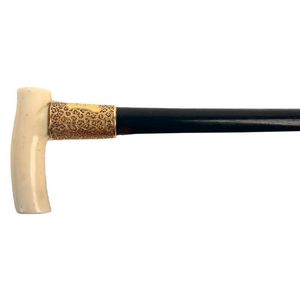Fine Fijian Pole Clubs with Incised Designs
You must be a subscriber, and be logged in to view price and dealer details.
Subscribe Now to view actual auction price for this item
When you subscribe, you have the option of setting the currency in which to display prices to $Au, $US, $NZ or Stg.
- Incised - A record of a name, date or inscription, or a decoration scratched into a surface, usually of a glass or ceramic item with a blunt instrument to make a coarse indentation. Compare with engraving where the surface is cut with a sharp instrument such as a metal needle or rotating tool to achieve a fine indentation.
- Patination / Patina - In broad terms, patination refers to the exterior surface appearance of the timber, the effect of fading caused by exposure to sunlight and air over the course of a century or more, changing the piece to a soft, mellow colour.
As patina is very difficult to replicate, it is one of the most important guides to determining the age of furniture.
Patina is also the term applied to the bloom or film found on old bronzes due to oxidisation.
This item has been included into following indexes:
Visually similar items

Two old Alafolo clubs, Malaita Island, Solomon Islands, both of these genuine old clubs were collected by Todd Barlin in the Kwaio area of central Malaita in the early 1980's. Kwaio people are the last fully traditional people by choice living in the isola


An impressive 18ct. yellow gold mounted, ivory handled walking cane, the plain tapered ebony hardwood shaft with wide a scroll embossed 18ct. gilded yellow gold mount, the shield cartouche with presentation engraving 'From J. Shaw To W.B. Paton, Dunedin, 1

P.Orr & Sons Madras brass telescope having a single draw tube, with a pull off glass cover & a sliding eyepiece protector. Inscribed 'P. Orr & Sons Madras No. 431'. Condition good to fair, some dents to the body, lens in good order. Length unextended 65 cm
